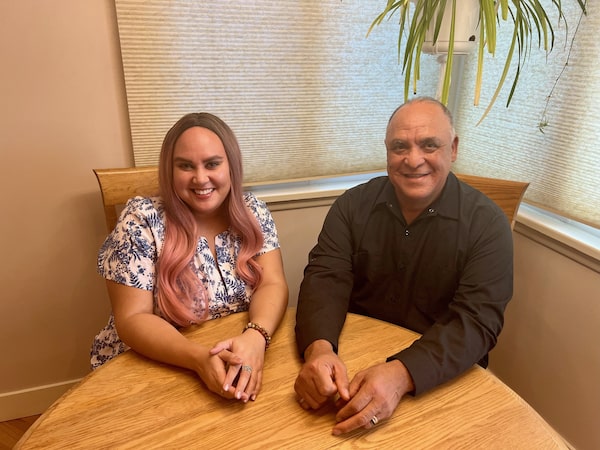Baby boomers are adjusting to a new retirement normal: No grandchildren
A pandemic ‘baby bust’ and declining birthrates have left many boomers to make peace with a life they had not considered
Baby boomers are adjusting to a new retirement normal: No grandchildren
ZOSIA BIELSKIPUBLISHED YESTERDAY
UPDATED 7 HOURS AGO
Open this photo in gallery:
Ziny Kirshenbaum is a 66-year-old in Thornhill, Ont., whose children have told her they won't have children.JENNIFER ROBERTS/THE GLOBE AND MAIL
More below • Zosia Bielski discusses grandchildless baby boomers on The Decibel
Ziny Kirshenbaum knows she would have made a good grandmother, if she got the chance.
She had accepted there would be no grandchildren from her daughter Sarah, who was clear for much of her life she wasn’t interested in having kids.
But Ms. Kirshenbaum, 66, still held out hope that her son, Jesse, might become a father, and she a grandmother. That hope vanished several years ago when he sat her down for a frank talk.
“I said, ‘Hey, by the way, last week I had a vasectomy. We’re done. It’s just not something we’re looking to do,’” Mr. Kirshenbaum recalled telling his mother, who cursed and threw up her hands.
“I just assumed he would have kids,” said Ms. Kirshenbaum, who lives in Thornhill, Ont. “He was great with kids when he was young. He babysat. Kids loved him, they were drawn to him. So it was a huge shock to me.”
Widowed for 15 years, she was looking forward to grandparenting through her retirement years. With no grandkids on the horizon, there’ll be no chance to “re-do” the best parts of parenting.
“You forget that feeling of when it was hard and you only remember the great stuff,” she said. “You remember taking them to Disney movies and to the museum, giving them big squeezes and giggles. That’s the part you get to relive when you have grandchildren.”
Sitting with the loss, she understands this decision isn’t up to her. Nor will she be the kind of mother who demands grandkids for her own sake: “They didn’t do this to hurt me,” she said.
Ms. Kirshenbaum isn’t the only grandchildless boomer trying to make peace with a life that was not expected. Many older Canadians who pined for grandchildren are slowly realizing their hopes may not materialize, as younger couples choose not to procreate, in droves.
The pandemic baby bust saw couples delaying or downsizing their childbearing plans in late 2020. By 2022, the drop intensified, with Canada reporting its lowest birth rates in nearly two decades.
In the face of untenable costs of living, soaring home prices, a precarious gig economy, lingering pandemic burnout and environmental uncertainty, many are understandably wary of bringing children into this world. Others simply feel no urge to become parents, a sentiment still disavowed in many families.
In 2022, 351,679 babies were born in Canada, a dip of 5 per cent from the year prior. More than a third of 15- to 49-year-olds said they did not intend to have any children, according to 2022 figures from Statistics Canada. That follows a steadily rising proportion of women 50 and older with no biological children, up to 17.4 per cent in 2022.
Declining birth rates – a slide that began decades ago with the advent of the birth control pill – have sparked fears among some observers about a weakened economy and health care systems crippled by Canada’s aging population.
For families, there are more personal reverberations, as baby boomers, a generation defined by self-determination, face a future quite at odds with what they envisioned.
With grandchildren no longer a given, traditional familial expectations are being upended. Many boomers were brought up to believe that grandparenting brings fulfilment in the elder years; they’re feeling untethered now that this stage of life has fallen through.
Some newcomers to Canada are grieving lost opportunities to lay a foundation in this country, with future generations halted. Others are struggling as they see their lineages dead end. On the other side, some grown children who’ve chosen not to have kids face questioning, pressure and guilt from parents who feel let down.
Across the country, the demographic shift is forcing a reckoning within families – fraught, delicate conversations about what was supposed to be, what won’t be, and what can be embraced instead.
Open this photo in gallery:
An early-learning centre in Bowmanville, Ont., lies empty during the early COVID-19 lockdowns of 2020. The pandemic led to a 'baby bust,' with more Canadians postponing or scaling down plans to raise families.MELISSA TAIT/THE GLOBE AND MAIL






